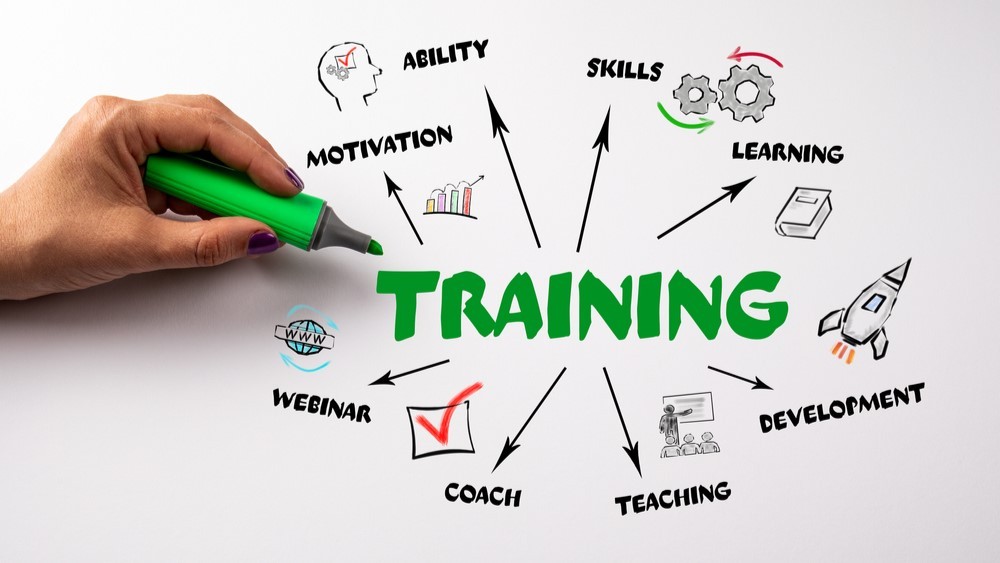Continuing professional development training refers to the process of tracking, and documenting skills, knowledge, and the experience that a pharmacist gains both formally and informally as he works.
It is a record of what he experiences, learns, and then applies to ensure that the profession is practiced safely and effectively.
Continuing professional development programs education and training emphasizes the importance of practical-based learning. It further states that hospital pharmacists should also take an active role in training nursing graduates, undergraduate pharmacy students, and professional pharmacists in hospital pharmacy training programs.
This is achieved by:
- Internal teaching programs
- External teaching programs.
- Drug abuse teaching programs
Internal Teaching Programs:
This is done by:
- Training the nursing students
- Training undergraduate students and internees in hospital pharmacy.
- Seminar conductions for graduate nurses, medical staff, and other health care professionals.
- Patient teaching programs.
- Training clinical pharmacists.
- Training residents in hospital administration.
Training Nursing Students:
He should prepare lectures updated each year to demonstrate the latest developments in pharmacology, therapeutics, and nomenclature used.
He should be according to the hospital drug formulary in case of weights and measures.
Seminar Conduction for Nursing Staff and Medical Staff:
He must concentrate here on pharmacy publications regarding therapeutic agents by lecturing in different sessions.
LECTURE 1:
Pharmacists here must mainly concentrate on
- Location of pharmacy.
- Description of physical plant.
- Pharmacy staff
- Hours of operation
- Services provided by the department
- Hospital policies regarding formularies i.e. use of generic names, metric systems, use of research drugs, ordering controlled and narcotic drugs, discharge medication, etc.
LECTURE 2:
He should mainly concentrate on the Formulary, emphasizing composition, scope of pharmacy, and therapeutic committee.
LECTURE 3:
He should mainly concentrate on prescription writings in regard to ill-eligible writings, non-standard abbreviations, wrong drug names, etc.
LECTURE 4:
This is regarding the current interest of the staff regarding the cost of the medication, incompatibilities, new drug regulations, amendments, drug interactions, etc.
Training Under Graduates in Hospital Pharmacy:
He should be able to train undergraduate hospital pharmacy students in having
- Through knowledge of drugs and their actions.
- Hospital manufacturing programs.
- An intimate knowledge of control procedures.
- Ability to conduct and participate in research.
- Ability to manage hospital pharmacy.
Patient Teaching Programs:
He should involve patients regarding the effective usage of medicines through
- Name and purpose of medication.
- Precautions to consider while taking medications.
- Food intake while administering drugs.
- Toxicity and adverse effects.
Training Clinical Pharmacists:
With the development of specialties in the profession of pharmacy, he should work closely with colleagues of pharmacy, and medical staff to conduct programs.
He should mainly concentrate on clinical-based pediatrics, toxicology, drug information analysis, infectious diseases, and geriatrics.
He should also train people in drug history procedures, drug profile programs, poison control centers, etc.
He should also concentrate on procedures followed in hospital and ambulatory patients.
Training Residents in Hospital Administration:
He should make the newly selected administrator participate and expose the functions and operating procedures of every department.
External Teaching Programs:
- Here he concentrates mainly on product development, preparation of parental products, sterilization techniques, and pharmacology.
- He can assist by participating in seminars of institutes, refreshment courses, and participation in nursing, dietary, and oxygen therapy.
- Comprehensive literature surveys in particular areas of hospital pharmacy etc.
Drug Abuse Teaching Programs:
He can make a worthy contribution toward the education of hospital staff employees, patients, and students enrolled in various teaching programs on the issue of drug abuse.
In addition to conducting lectures and conferences on the subjects displays for showing in other hospitals, schools, colleges, etc.
Responsibilities of the pharmacist:
The responsibilities are:
- Administrative budget, purchasing, inventory control, records, and reports.
- Professional dispensing, compounding, drug consultant role, teaching, and research
- Local observation of central and states pertaining to drugs, local rules apply in regard to alcohol, narcotics, dangerous drugs, poisons, pharmacy
- Ethics to be followed with respect to:
- Patients
- Physicians
- Hospital
- Community
Make sure you also check our other amazing Article on: Thyroid Function Tests
